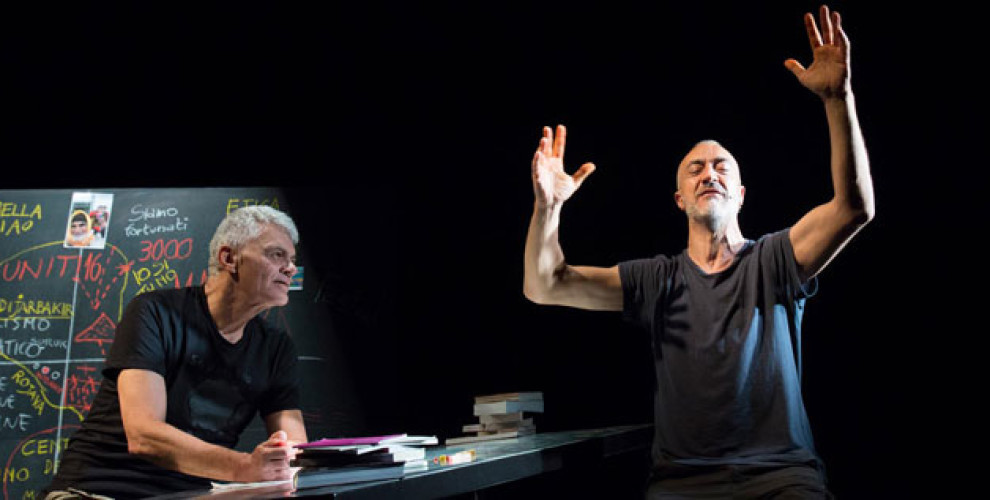Sold Out for Play on Kurdistan in Milan
All dates have been sold out showing once again the great interest people have about Kurds and their struggle for freedom and free life.
All dates have been sold out showing once again the great interest people have about Kurds and their struggle for freedom and free life.

‘The country that is not - Journey through the mountains people’, is a play by Gianluigi Gherzi and Fabrizio Saccomanno.
The play had its national premier at the Naples Theatre Festival and will be performed until Saturday in Milan at the Theatre Elfo.
All dates have been sold out showing once again the great interest people have about Kurds and their struggle for freedom and free life.
‘The country that is not - Journey through the mountains people’ is directed and interpreted by Gianluigi Gherzi and Fabrizio Saccomanno.

It is a journey beginning from a migrant’s landing on a rock of Salento and arriving in Kurdistan, a state impossible to find. A journey to discover that between worlds that seem so far from each other there is only the sea.
‘The country that is not’, is a production of Ura Teatro and a project by Gigi Gherzi and Fabrizio Saccomanno, for the first time together.
The two well-known and skilled narrators in the Italian theatrical scene, who - although from different approaches and narrative schemes - investigate the dramas of the present and discover poetry in the complexity of contemporary experiences.
The project was born from the need both writers had to tell of a new political utopia in the world and of a people that risks total annihilation, the Kurds.
The project counts with the collaboration of Giovanni Giacopuzzi, researcher and activist of the Kurdish cause and UIKI (Kurdistan Information Office in Italy).
On stage Gherzi and Saccomanno, let out the narration in different directions. Behind them a wall that becomes a blackboard and an emotional map.

Gherzi and Saccomanno tell of the Kurdish resistance through the stories of the people who lived it, emphasizing that there are stories that “one doesn’t know how to tell” because even if “one knows them, he/she will never really understand them, because they are full of a mystery, a beauty and a horror that sometimes transcend leaving words stuttering.”
The history of the Kurdish people today poses big questions about what democracy is, the authors said, “about how to react to the progressive emptying of democracy. In so doing, we realize that the Kurdish example affects us far more than it seems and that, in fact, the “country that is not", today, is perhaps also ours”.
